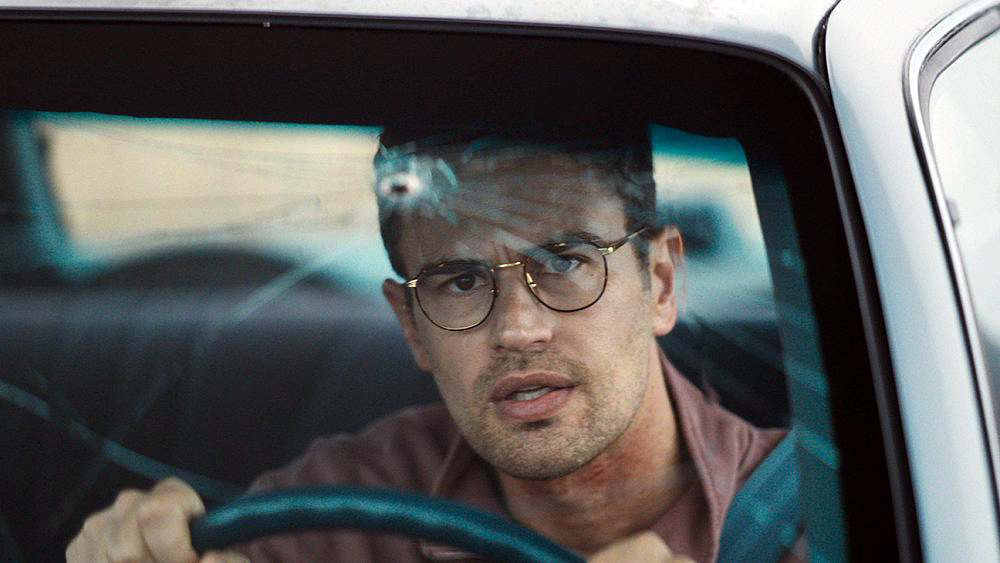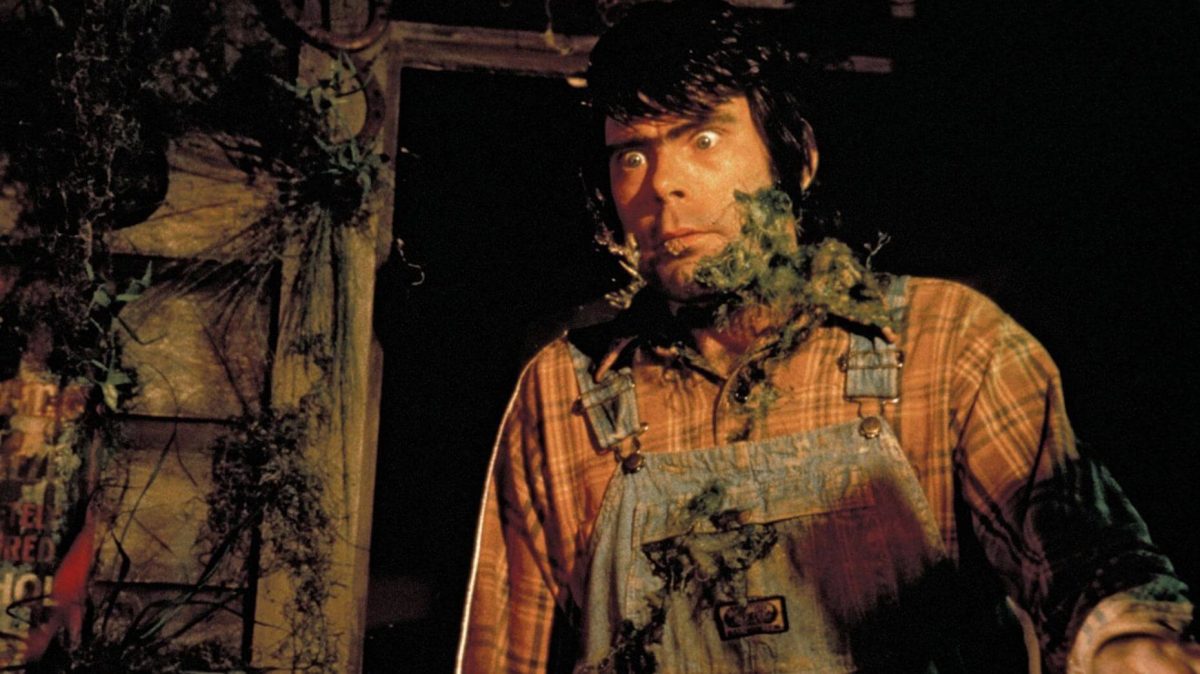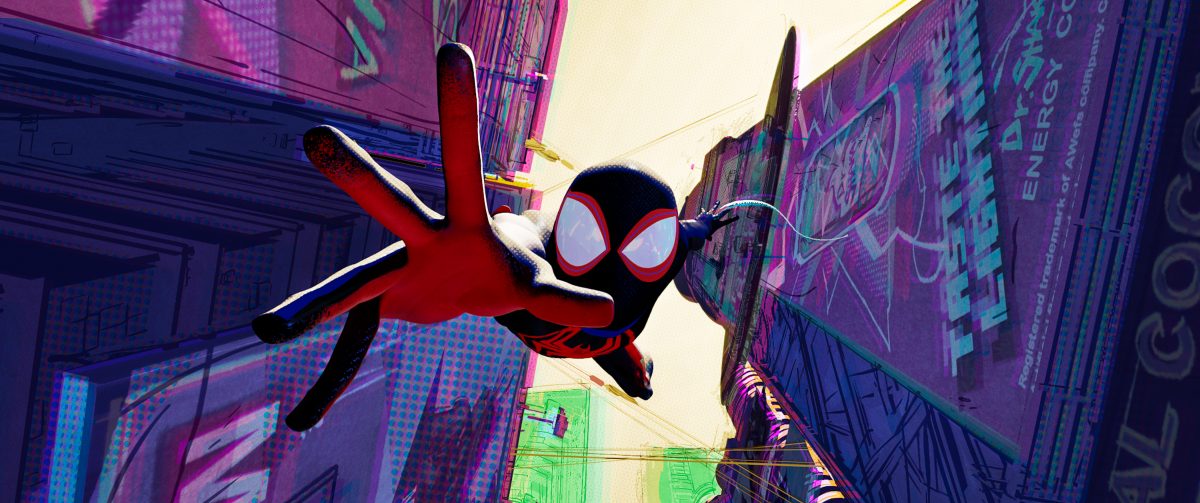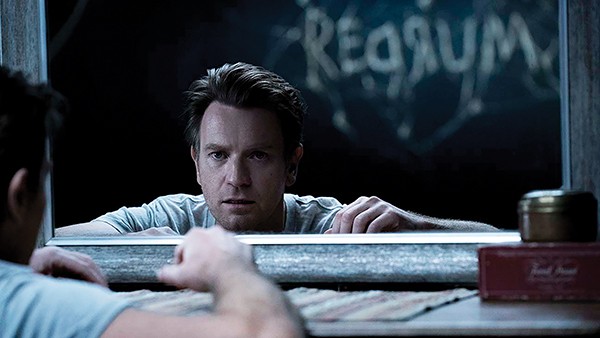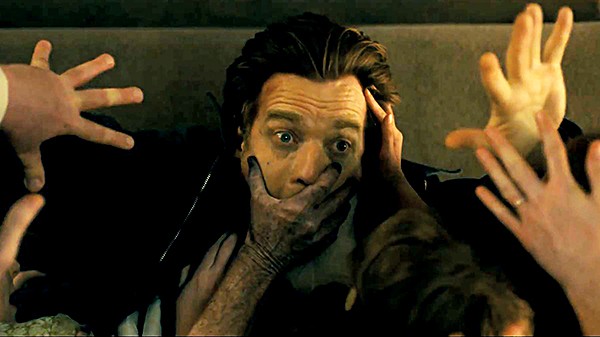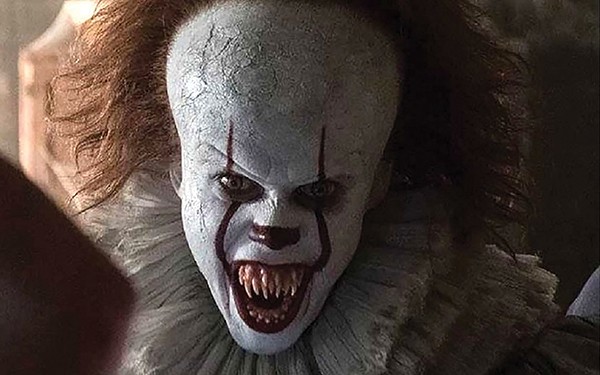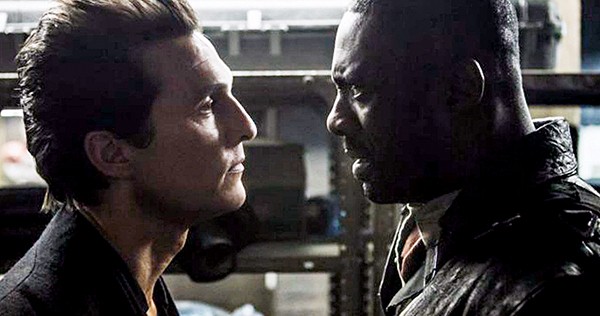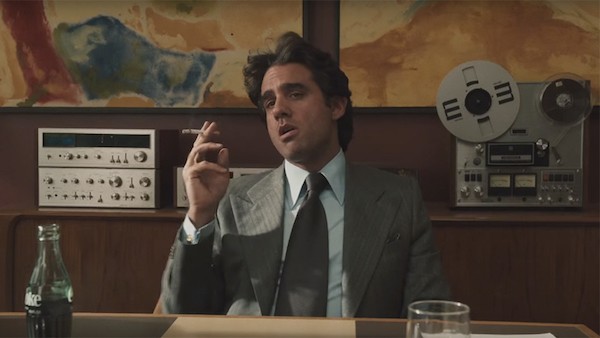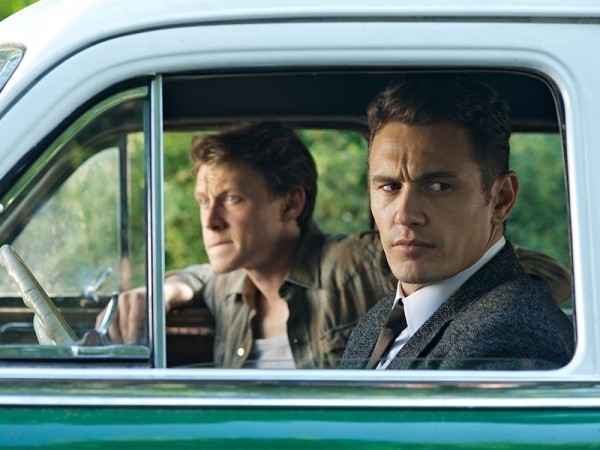The best rediscovery from last year’s Time Warp Drive-In lineup was Creepshow. The 1982 anthology film was directed by Night of the Living Dead’s George Romero and written by Stephen King, in one of the horror writer’s rare outings as a screenwriter. An homage to classic horror magazines from infamous comic publisher EC, Creepshow consists of five stories, two of which were adaptations of King’s previously published short stories, “Weeds” and “The Crate.”
If you’re just looking for a film where Leslie Nielsen murders Ted Danson in a startlingly creative fashion, Creepshow is for you. For my money, it is a masterpiece collaboration between two legends at the top of their game. King himself had a cameo as the hapless farmer who is slowly eaten by an alien plant in “The Lonesome Death of Jordy Verrill.” (Verdict: Great writer, not a great actor.)
In hindsight, what Creepshow reveals is that Stephen King is funny — or at least, some of his older stuff is funny. Before he got into epic fantasy with The Dark Tower, before The Shining and Carrie created the expectation that he had to be psychologically profound, and before he was the most adapted author in the world (a whopping 412 film and TV credits, according to IMDb), King wrote a lot of short stories that exhibited a rather fiendish sense of humor.
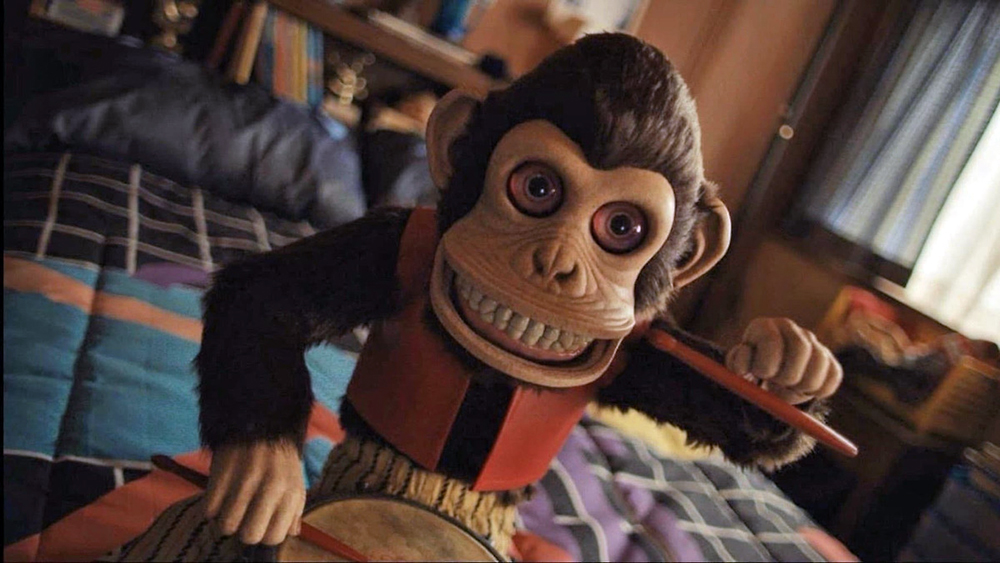
Maybe some of those short stories needed to be funny because they were published in magazines like Playboy and, in the case of “The Monkey,” Gallery. (For my online readers, pornography was once primarily distributed via still images in magazines. Many of these skin mags also published words written by respected authors. It was a win-win. The writers got paid top dollar, while the publishers could yell, “I publish Norman Freakin’ Mailer!” when they were inevitably dragged into court on obscenity charges. Hence the old joke, “I only read Playboy for the articles.”)
“The Monkey” was later gussied up and expanded for publication in King’s 1985 short story collection Skeleton Crew. It provided the book’s cover image of a wind-up, cymbal-banging monkey doll. According to director Osgood Perkins, that was changed to a drum-banging monkey for his adaptation because Disney trademarked the cymbal-banging monkey for Toy Story merchandise.
Perkins’ last film, Longlegs, was an unexpected jolt of horror surrealism that took off thanks to a bravado performance by Nicolas Cage — and really, are there any other kinds of Cage performances? The Monkey doesn’t brood like most of today’s art horror (I’m looking at you, Nosferatu) because it’s too busy doing slapstick.
The film opens in a dingy pawn shop some time in the 1990s. Capt. Petey Shelburn (Severance’s Adam Scott) bursts in, demanding that the owner take back the monkey he sold him. The owner cites his “no returns on toys” policy, which is clearly posted on a sign behind the counter. But Petey insists that this is no toy. If the monkey plays his drum, bad things will happen. The owner has just enough time to scoff at the notion before he is impaled by an improperly secured speargun. Petey responds by taking a flamethrower off the wall (yes, this is the kind of place that sells fully loaded flamethrowers) and melting the monkey into plastic and metal sludge.
But it takes more than a convenient flamethrower to keep a bad monkey down. Petey disappears, leaving his wife Lois (Tatiana Maslany) and their two kids Hal and Bill (both played by Christian Coventry) alone and destitute. Later, when the twins are middle schoolers, Hal finds a hatbox deep in his dad’s old closet, marked “organ grinder monkey. Turn the key and see what happens. Like life.”
Naturally, the boys respond to the cryptic instructions by turning the key, and they are disappointed when nothing seems to happen. Then, Lois sets off on a date, leaving the two boys with the babysitter Annie (Danica Dreyer), who takes them out for dinner at a hibachi grill. But while the chef is flirting with Annie, he gets distracted and accidentally chops her head off.
At this point, I can hear the horror host Joe Bob Briggs gleefully rattling off, “Speargun impalement! Hibachi decapitation!” There will be many, many more Joe Bob’s Drive-In Theater-worthy deaths before this monkey is done.
Lois tries to comfort her traumatized kids with a speech, which Maslany of Orphan Black fame absolutely nails. Death, she says, is the inevitable outcome of life. “Everything is an accident, or nothing is an accident. Same thing either way.”
Needless to say, the bickering brothers are not comforted. Further experiments with the monkey lead to more random loss of life, until Hal turns the key to try to do away with Bill. Instead, Lois dies suddenly of a rare brain hemorrhage, leaving the brothers to be raised by their swinger uncle Chip (our director, sporting over-the-top muttonchops).
Twenty-five years later, Hal and Bill (now played by Theo James) are estranged. Hal is a deadbeat dad to his son Petey (Colin O’Brien), fearful that the monkey might return. When their aunt dies hilariously, Hal is called back to his hometown, where he learns that a series of deaths has happened, each more unlikely than the last. Is the monkey loose again? Is Bill behind it? Will someone swallow a million wasps? (The answer to the last question is a resounding yes.)
Perkins is letting his freak flag fly in The Monkey, and it pays off big time. Gore in film is only horrifying if it is grounded in realism. As Sam Raimi realized in Evil Dead II, at a certain point, spurting blood becomes funny. The Monkey hits that sweet spot. James is great as the two brothers who hate each other, and the young actor Coventry is even better. Maslany, Scott, and Elijah Wood leave big impressions in small parts. This film is crass, utterly tasteless, and exactly what I needed to see on a doomy Sunday afternoon.
The Monkey
Now playing
Multiple locations
